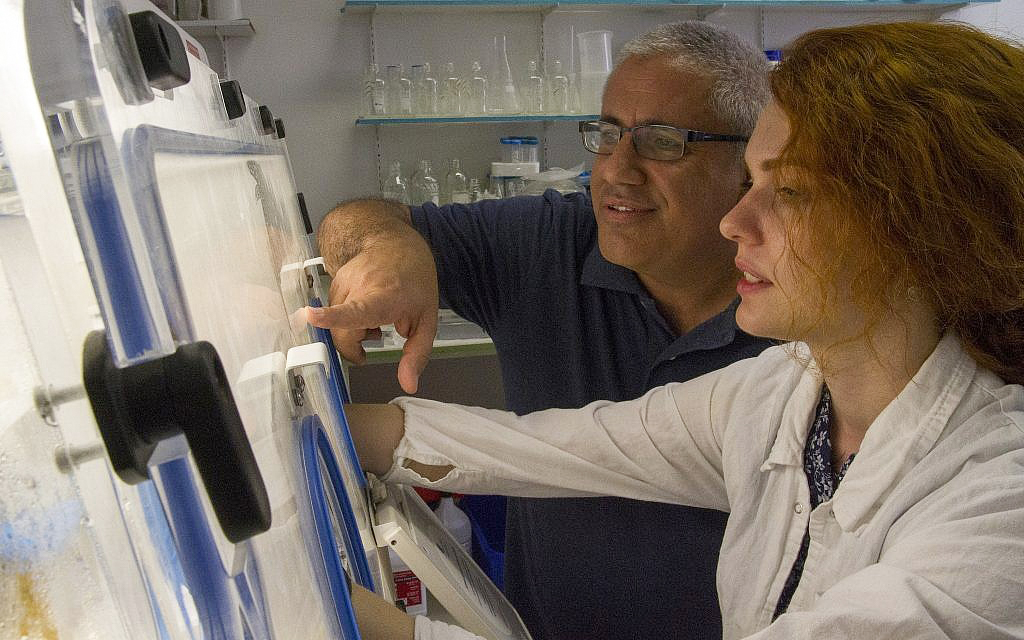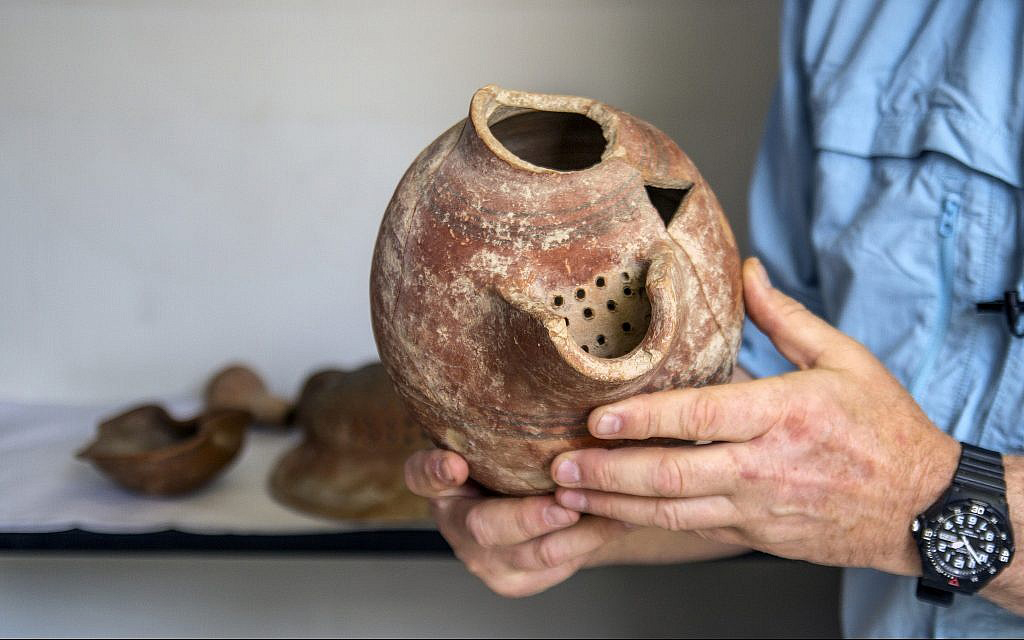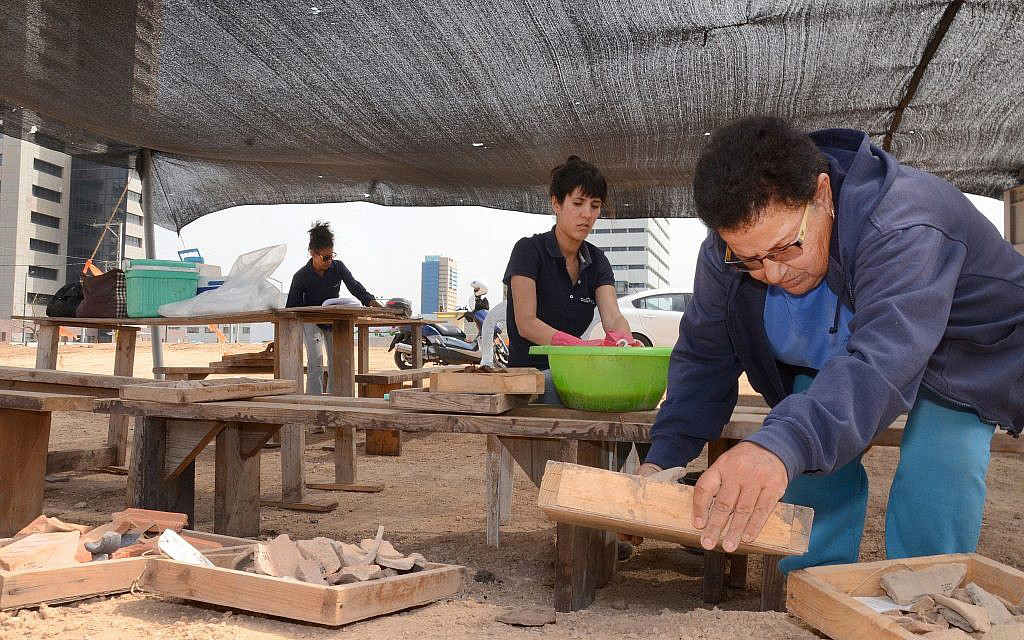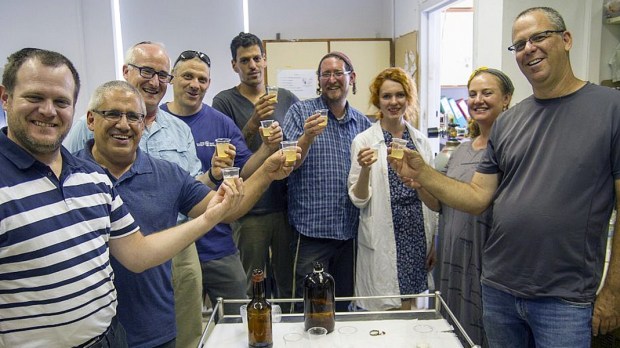Utilizing samples of yeast from excavated clay pots, which had been dormant for thousands of years, a team composed of biologists, archaeologists, and craft brewers has successfully brewed beer that could have been consumed by our favorite biblical figures.
During the complicated experiment, scientists were able to isolate six different strains of yeast from the broken sherds of ancient clay pots. The samples were taken from sites that were populated by Philistines, Canaanites, Egyptians, or Judeans in the ancient world.

After the team used high-tech imaging and identification methods, including recording each sample’s DNA sequence, they were able to brew each of the six strains into “ancient beers.” According to the mBio journal paper “Isolation and Characterization of Live Yeast Cells from Ancient Vessels as a Tool in Bio-Archaeology,” each beer has a unique fragrance.
Dr. Yitzhak Paz, an archaeologist from Israeli Antiquities Authority (IAA) praised the endeavor in a press release:
“We are talking about a real breakthrough here. This is the first time we have managed to produce ancient alcohol from ancient yeast. In other words, from the original substances from which alcohol was produced. This has never been done before.”
He went on to note that the new research will open other avenues to help identify and recreate ancient foodstuffs.
Dr. Ronen Hazan, the microbiologist who initiated the study, called the work the fulfillment of a lifetime dream to collaborate with archaeologists. He added, with a laugh, “it was fun for us to work for a change in such a multidisciplinary environment of biologists, archaeologists and crazy beer makers — not to mention also all the beer and fun alongside the research.”
The six samples of yeast were each brewed into beers with vastly differing tastes. The Times of Israel explains that, during fermentation, the different yeasts emit different gases with flavors or aromas based upon their genetic makeup and original source.
The ancient beer jugs that provided the samples appear large and vase-like, with a grated spout, similar to a watering can. The fine holes at the spout would offer a modicum of filtering to the often silty beverage within.

In the ancient world, consumption of beer was widespread and indiscriminate. The rich and the poor people of all ages enjoyed the brew, which is probably one reason why so many samples have survived over the millennia.
As far as the authenticity of the ancient flavors of the beer, Hazan admitted, “This is very tricky”:
“Beside the fact that we used modern ingredients, keep in mind that we managed to isolate only few yeast out of probably many more which were in the original beer sourdough. Thus, we do not know what was exactly the taste.”
Hazan believes they can get a more accurate flavor by adding a genetic screen to their isolation method, as well as by analyzing the residue left on the insides of the clay jars, which could give clues as to what other ingredients were in the brews.

Paz described each of the strains as “drinkable.” He said that getting the ingredients just right is not necessarily the most important part of recreating the ancient tastes:
“The point is that the most important ingredient, yeast, is ancient, and since the product was very close to beers that are known today in Ethiopia and elsewhere, we believe that the flavor we achieved is very close if not identical to the one that was known in ancient times.”
Hazan mentioned that the team is currently exploring the idea of bottling their ‘new’ beer for worldwide consumption. If they find the right backers, soon we all may get a chance to experience biblical brews. However, as he is ever a scientist, he noted that the production of beer is merely an added bonus to their research:
“This study … has implications on the study of human dietary and microorganisms domestication. Our methods are not limited to yeast but also can shed light on cheese, wine, pickles and any other fermented food,” he said.

